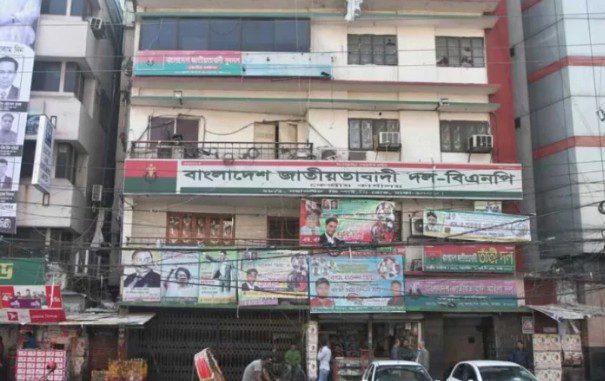Bangladesh Nationalist Party (BNP) affiliated Jatiyatabadi Jubo Dal, Jatiyatabadi Chhatra Dal, and Jatiyatabadi Swechchhasebak Dal on Saturday voiced deep concern over what it described as a breakdown of law and order across the country. The parties also accused the authorities of selectively targeting opposition members while protecting perpetrators of political violence.
At a press conference in BNP’s New Paltan office in Dhaka, the leaders of three organization strongly condemned the recent killing of Lal Chan alias Sohag, a scrap trader and youth activist, who was stoned to death in broad daylight near Mitford hospital. They described the killing as “barbaric” and said it had shocked the entire nation.
“In an age of civilisation, such primitive violence is simply unacceptable,” the parties said, adding that several youth and student wing members suspected of involvement had been expelled from the organisation for life. However, they alleged that individuals clearly seen in CCTV and social media footage participating in the fatal assault had not been arrested.
The parties claimed that police had deliberately left out the actual culprits and instead filed politically motivated charges against innocent persons.
The BNP linked the rise in political violence to what it termed a “deliberate strategy” by the ruling authorities to destabilise the country ahead of the national elections. It cited several recent incidents as part of this pattern, including the killing of a former Jubo Dal leader in Khulna, mob lynchings in Cumilla, an attack on a religious cleric during Friday prayers in Chandpur, and the murder of student activists at Dhaka University and Prime Asia University.
“We are not in denial. Over the past year, we have expelled thousands of our own activists after verifying complaints against them,” the party said. “But has the government taken any legal action against those responsible from their side? If not, why this double standard?”
The BNP affiliates accused the ruling camp of intentionally weakening law enforcement agencies to create a climate of fear and lawlessness, which could then be used to justify postponing the election or discrediting opposition parties.


